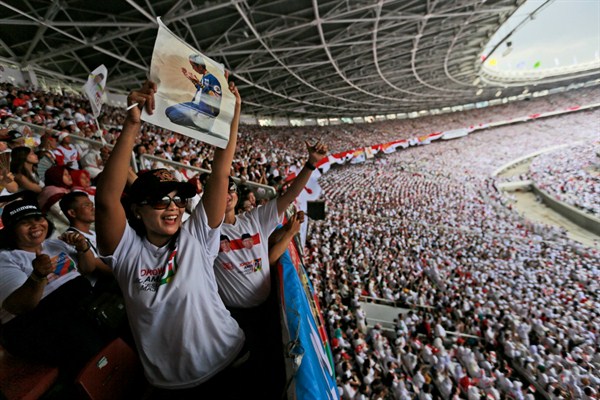Indonesians go to the polls this week to elect their president and a new parliament. It is the first time in Indonesia’s modern history that both elections will be held on the same day. But most of the focus is on the presidential race and incumbent Joko Widodo, widely known as Jokowi, who remains the strong favorite against challenger Prabowo Subianto, a former lieutenant general whom he defeated in a tight election five years ago. Most polls show Jokowi with a wide lead, although Prabowo’s campaign could be picking up steam in its final days.
If Jokowi is reelected, he would assume a second term in a political environment where the vast hopes for his presidency, which surged before his election in 2014, have diminished. Jokowi has made some progress with economic reforms and combating corruption, but overall his record as president has been mixed at best. Although he rose to power because of Indonesia’s democratization—he was the first modern president not to come from the political and military elite—he has both been stymied by anti-democratic forces and has often abetted them. While he had presented himself as a champion of human rights, he has overseen a reemergence of Indonesia’s military, long known for abuses, as a powerful actor in politics. And though he made fighting graft and red tape major themes of his 2014 campaign, he has made limited inroads in a country where patronage politics is still the norm.
In 2014, much of the Indonesian public exhilarated in Jokowi’s win. Jokowi had built a reputation as a pragmatic, clean, no-nonsense and charismatic reformer during his time as the mayor of Solo, a city in Central Java, and then as the governor of the capital, Jakarta. He even seemed like a potentially revolutionary figure who was skilled at connecting directly with Indonesians. He could be the leader to prod Indonesia to reckon with the atrocities of the Suharto era, improve transparency, accountability and honesty in government, attract investment, address poverty and inequality, and generally make government work, for the people, from the ground up.

